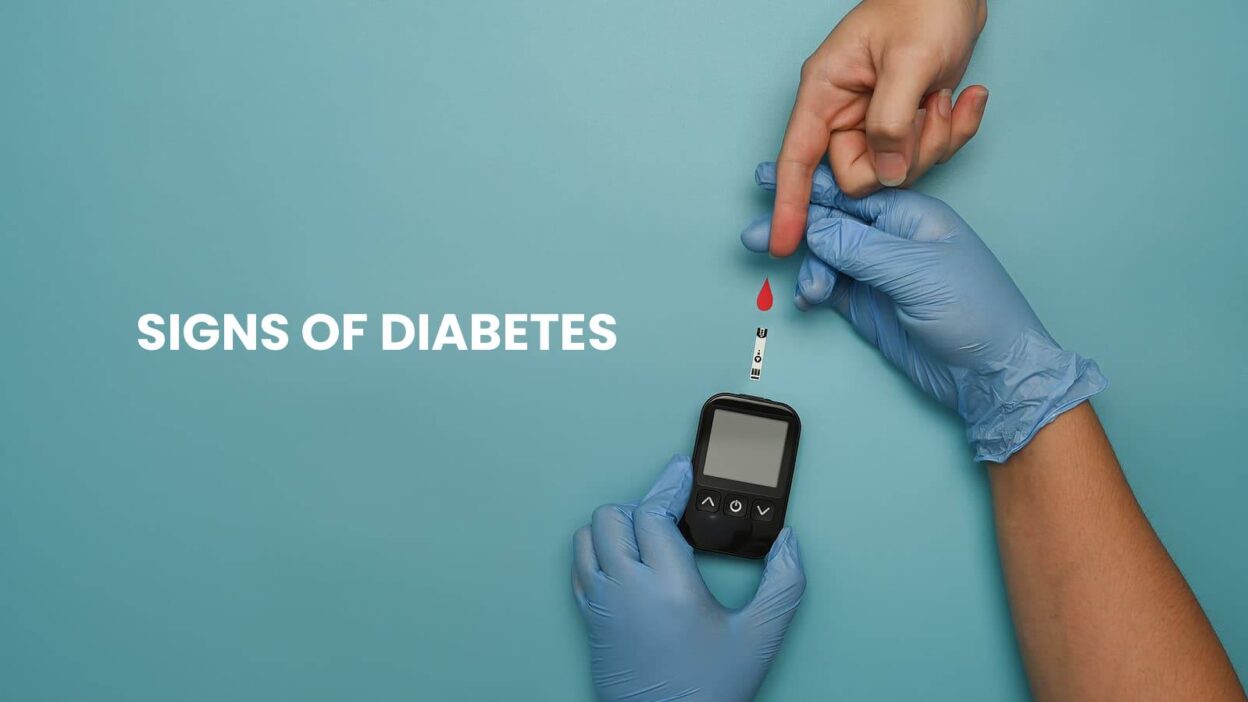Diabetes is one of Nigeria’s fastest-growing health challenges, quietly affecting millions of people, many without even knowing it. Because symptoms often develop slowly, it’s easy to ignore the early warning signs until serious complications arise.
But early detection changes everything. When spotted early, diabetes can be managed successfully preventing kidney damage, blindness, amputations, and heart disease.
So, how can you tell if you or someone close to you might be at risk? Here are the key signs of diabetes to watch out for and what they mean for your health.
1. Frequent urination (especially at night)
If you find yourself visiting the bathroom more often than usual, especially at night; it might be a sign your body is trying to get rid of excess glucose through urine.
In diabetes, blood sugar levels become too high, and your kidneys work overtime to remove it. This leads to increased urination, dehydration, and fatigue.
Tip: Waking up more than twice at night to urinate could be a red flag especially if this is new for you.
2. Constant thirst and dry mouth
Because your body loses so much fluid through frequent urination, you become constantly thirsty. No matter how much water you drink, your mouth feels dry, and your thirst doesn’t go away.
If you’re always reaching for a drink, especially water or juice, and still feel thirsty, it’s time to check your blood sugar.
3. Unexplained weight loss
Losing weight without trying might sound good, but it’s often a warning sign. When your body can’t use glucose properly for energy, it starts breaking down fat and muscle instead.
If you notice sudden weight loss (5 kg or more in a few weeks or months) despite eating normally, it’s a possible symptom of diabetes, particularly Type 1 diabetes or uncontrolled Type 2.
4. Constant tiredness or fatigue
Glucose is your body’s main source of energy. When your body can’t use it properly, your cells are literally starving even though there’s plenty of sugar in your blood.
This results in constant tiredness, weakness, and lack of concentration, even after a full night’s sleep. Many people mistake this for stress or “just being busy.”
5. Blurred vision
High blood sugar can cause temporary swelling in the lens of the eye, making your vision blurry or distorted.
If you suddenly struggle to read, recognize faces, or your vision changes from clear to cloudy; see a doctor. Uncontrolled diabetes can lead to permanent eye damage (diabetic retinopathy) if not managed early.
6. Slow-healing wounds or frequent infections
Do small cuts, sores, or wounds take unusually long to heal? Or do you keep getting infections like skin boils, gum infections, or urinary tract infections?
High blood sugar slows down healing and weakens the immune system, making the body less able to fight bacteria.
Warning: For people with diabetes, even minor wounds, especially on the feet can become serious if ignored.
7. Numbness or tingling in hands and feet
This symptom, known as diabetic neuropathy, happens when high blood sugar damages nerves over time. It often starts with tingling, burning, or loss of feeling in your hands or feet.
Left untreated, this can progress to severe nerve pain or even foot ulcers. Checking your feet daily and reporting any numbness early can prevent complications.
8. Increased hunger (even after eating)
You’ve just eaten, but you still feel hungry – why?
When your body can’t move glucose from your blood into your cells, your brain thinks you’re starving and signals you to eat more.
This leads to polyphagia, or constant hunger, one of the classic diabetes triad symptoms (alongside frequent urination and thirst).
9. Dark, velvety patches on skin (neck, armpits, groin)
A skin condition called acanthosis nigricans can appear as dark, thickened, or velvety patches especially around the neck, armpits, elbows, or groin.
It’s often an early warning sign of insulin resistance, a key risk factor for Type 2 diabetes. If you notice this change, book a screening test, it’s one of the easiest signs to miss.
10. Irritability, mood swings, or blurred thinking
Low or high blood sugar levels can affect brain function and mood. You may feel irritable, anxious, or foggy-headed. People often describe it as “feeling off” or “not like myself.”
If you regularly feel mentally tired, dizzy, or forgetful, especially after meals, it’s worth checking your blood sugar levels.
Bonus: Warning signs in children and adolescents
Diabetes isn’t just an adult disease. In Nigeria, cases of Type 1 diabetes in children are increasing. Watch out for:
- Bedwetting in a child who previously stayed dry at night
- Sudden weight loss or fatigue
- Excessive thirst or frequent urination
- Irritability and weakness
If these appear, seek medical help immediately; early diagnosis saves lives.
When to see a doctor
If you notice any of these symptoms, don’t panic but don’t delay either. Schedule a simple blood sugar test at a reliable clinic or diagnostic centre.
At Pretty Health Care, our diagnostic team offers fast, accurate diabetes screening and wellness consultations. Whether for individuals, schools, or corporate wellness programs, early testing can help you take control before complications arise.
How Pretty Health Care helps Nigerians stay ahead of diabetes
At Pretty Health Care, we believe prevention is better than cure.
We provide:
- Routine blood sugar checks & full diabetes screening packages
- Corporate wellness programs for companies and NGOs
- School health programs teaching children healthy habits early
- Lifestyle and nutrition guidance for diabetes prevention and management
Visit us at prettyhealthcare.com.ng
Call +2348114346325 to book a screening or schedule a workplace health day.
Conclusion
Diabetes doesn’t start overnight. The body gives warnings — subtle at first, then clearer with time.
The earlier you pay attention to these signs and take action, the easier it is to prevent or control diabetes.
So today, ask yourself:
Do I feel thirstier than usual? Tired? Losing weight unexpectedly? If yes, it’s time for a simple blood sugar test.




